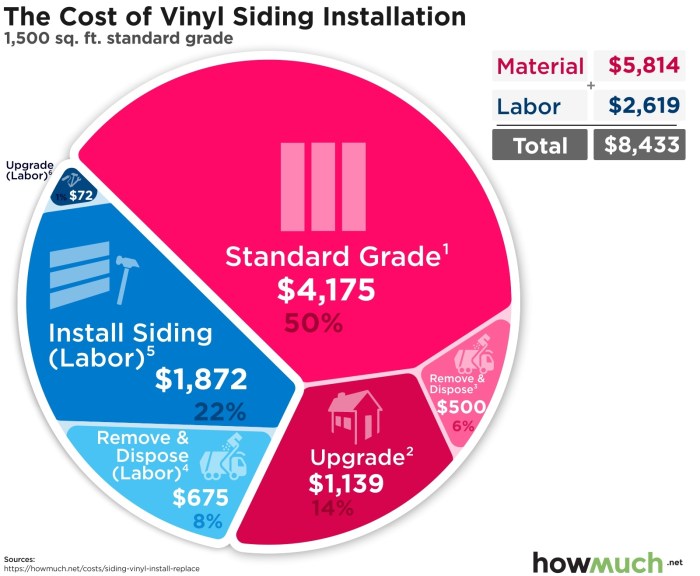Crafting Success: A Guide to Commercial Painting Contractors
As commercial painting contractors take center stage, this opening passage beckons readers into a world crafted with good knowledge, ensuring a reading experience that is both absorbing and distinctly original. From the role they play in construction projects to the specialized services they offer, this guide covers it all.
Whether you're a seasoned professional or a curious novice, the insights provided here will shed light on the intricate world of commercial painting contractors.
Overview of Commercial Painting Contractors

Commercial painting contractors play a crucial role in the construction industry by providing painting services for large-scale projects. These professionals are responsible for painting various commercial buildings, structures, and facilities to enhance their appearance and protect them from environmental elements.
Projects Undertaken by Commercial Painting Contractors
- Office buildings
- Retail stores
- Hotels and resorts
- Hospitals and healthcare facilities
- Schools and educational institutions
Importance of Hiring Professional Commercial Painting Contractors
When it comes to large-scale projects, hiring professional commercial painting contractors is essential to ensure high-quality work and timely completion. These contractors have the expertise, equipment, and resources to handle complex painting jobs efficiently. They also use premium quality paints and coatings that provide durability and long-lasting results.
Services Offered by Commercial Painting Contractors
Commercial painting contractors offer a wide range of services tailored specifically for businesses and commercial properties. These services go beyond what residential painters typically provide, as they are equipped to handle larger projects and unique requirements.
Interior and Exterior Painting
Commercial painting contractors excel in both interior and exterior painting for commercial buildings, including offices, retail spaces, warehouses, and more. They have the expertise and equipment to handle painting projects of any size and complexity.
Surface Preparation and Repair
In addition to painting, commercial painting contractors also specialize in surface preparation and repair work. This may include sanding, scraping, patching, and priming surfaces to ensure a smooth and long-lasting finish.
Specialized Coating Applications
Commercial painting contractors may offer specialized coating applications for specific needs, such as anti-slip coatings, fire-resistant coatings, or high-durability coatings. These coatings provide added protection and functionality to surfaces in commercial settings.
Color Consultation and Design Services
Many commercial painting contractors also provide color consultation and design services to help businesses choose the right colors and finishes for their space. This ensures a cohesive and professional look that aligns with the brand and aesthetic of the business.
Flexible Scheduling and Minimal Disruption
Commercial painting contractors understand the importance of minimizing disruption to business operations during painting projects. They often offer flexible scheduling options to work around business hours and complete projects efficiently.
Compliance with Safety and Environmental Regulations
Commercial painting contractors adhere to safety and environmental regulations to ensure the health and well-being of occupants and the surrounding environment. They use eco-friendly paints and follow proper safety protocols throughout the painting process.
Qualifications and Skills of Commercial Painting Contractors
To work as a commercial painting contractor, individuals must possess specific qualifications, certifications, skills, and experience to excel in the industry.
Qualifications and Certifications
- Completion of a high school diploma or equivalent is typically required.
- Obtaining a painter's license or certification may be necessary depending on the state or country.
- Some employers may require additional training or certification in specific painting techniques or safety protocols.
Skills and Expertise
- Proficiency in preparing surfaces, applying paint, and using various tools and equipment is essential.
- Attention to detail and precision to ensure high-quality work and customer satisfaction.
- Knowledge of different types of paints, finishes, and application methods to achieve desired results.
- Ability to work efficiently and effectively to meet project deadlines and budgets.
Importance of Experience
Having experience in the commercial painting industry is crucial when hiring contractors as it demonstrates:
- Capability to handle a variety of projects with different requirements and complexities.
- Familiarity with industry standards, regulations, and best practices for safety and quality.
- A track record of successful projects and satisfied clients, showcasing reliability and professionalism.
Factors to Consider When Hiring Commercial Painting Contractors
When looking to hire commercial painting contractors for a project, there are several key factors to consider in order to ensure the best results and a smooth process. Evaluating potential contractors based on specific criteria will help you make an informed decision and choose the right professional for the job.
Additionally, the significance of insurance and licensing cannot be overstated when selecting a commercial painting contractor, as it is crucial for the protection of your property and the workers involved in the project.
Checklist of Criteria to Evaluate Potential Commercial Painting Contractors
- Experience: Look for contractors with a proven track record and experience in commercial painting projects similar to yours.
- Reputation: Research reviews and testimonials from previous clients to gauge the reputation of the contractor.
- Portfolio: Review the contractor's portfolio to assess the quality of their work and determine if it aligns with your expectations.
- Insurance: Ensure that the contractor has liability insurance and workers' compensation coverage to protect against any accidents or damages during the project.
- Licensing: Verify that the contractor holds the necessary licenses and certifications required for commercial painting work in your area.
- Communication: Effective communication is key, so consider the contractor's responsiveness, clarity, and professionalism in their interactions with you.
Significance of Insurance and Licensing
Insurance and licensing are essential when choosing a commercial painting contractor, as they provide important protections for both you as the client and the contractors themselves. Insurance coverage ensures that you are not held liable for any accidents or injuries that may occur on your property during the project.
Licensing indicates that the contractor has met the necessary standards and qualifications to perform commercial painting work, giving you peace of mind that they are competent and reliable.
Trends in the Commercial Painting Industry
As the commercial painting industry continues to evolve, several trends have emerged that are shaping the way projects are approached and completed. These trends encompass everything from the materials used to the tools and technologies employed by painting contractors.
Eco-Friendly Paints and Technologies
In recent years, there has been a significant shift towards the use of eco-friendly paints and technologies in commercial painting projects. This trend is driven by a growing awareness of the environmental impact of traditional paint products and a desire to reduce harmful emissions and waste.
- Commercial painting contractors are increasingly using low-VOC (volatile organic compound) and zero-VOC paints, which are less harmful to the environment and occupants of commercial spaces.
- The adoption of eco-friendly painting technologies, such as airless sprayers and HVLP (high volume, low pressure) systems, has also become more widespread, allowing for more efficient and sustainable painting practices.
Advancements in Tools and Equipment
The commercial painting industry has seen rapid advancements in tools and equipment, leading to increased efficiency and precision in painting projects.
- New tools such as digital color matching systems and laser-guided paint sprayers have revolutionized the way colors are selected and applied, streamlining the painting process.
- Robotic painting systems are also being used in some commercial projects, offering unmatched speed and accuracy in large-scale painting jobs.
Emerging Trends in Commercial Painting Services
Looking ahead, several emerging trends are expected to shape the future of commercial painting services, offering new opportunities and challenges for painting contractors.
- The integration of augmented reality (AR) and virtual reality (VR) technologies into the painting process is poised to enhance project visualization and planning, improving communication between contractors and clients.
- Customized paint solutions tailored to specific industries and applications, such as antimicrobial coatings for healthcare facilities or heat-reflective paints for energy-efficient buildings, are likely to become more prevalent in the market.
Conclusive Thoughts
In conclusion, the realm of commercial painting contractors is a dynamic and essential part of the construction industry. By understanding their qualifications, services, and industry trends, one can navigate the complexities of hiring the right professionals for any project. Dive into this world armed with knowledge and watch your projects transform with the stroke of a brush.
Q&A
What qualifications are required to work as a commercial painting contractor?
Commercial painting contractors typically need certifications in painting techniques, safety training, and knowledge of industry regulations.
How do commercial painting contractors differ from residential painters?
Commercial painting contractors handle larger projects like office buildings or warehouses, while residential painters focus on homes and smaller properties.
What are some key factors to consider when hiring commercial painting contractors?
Factors to consider include experience, insurance coverage, licensing, portfolio of past projects, and adherence to safety standards.




